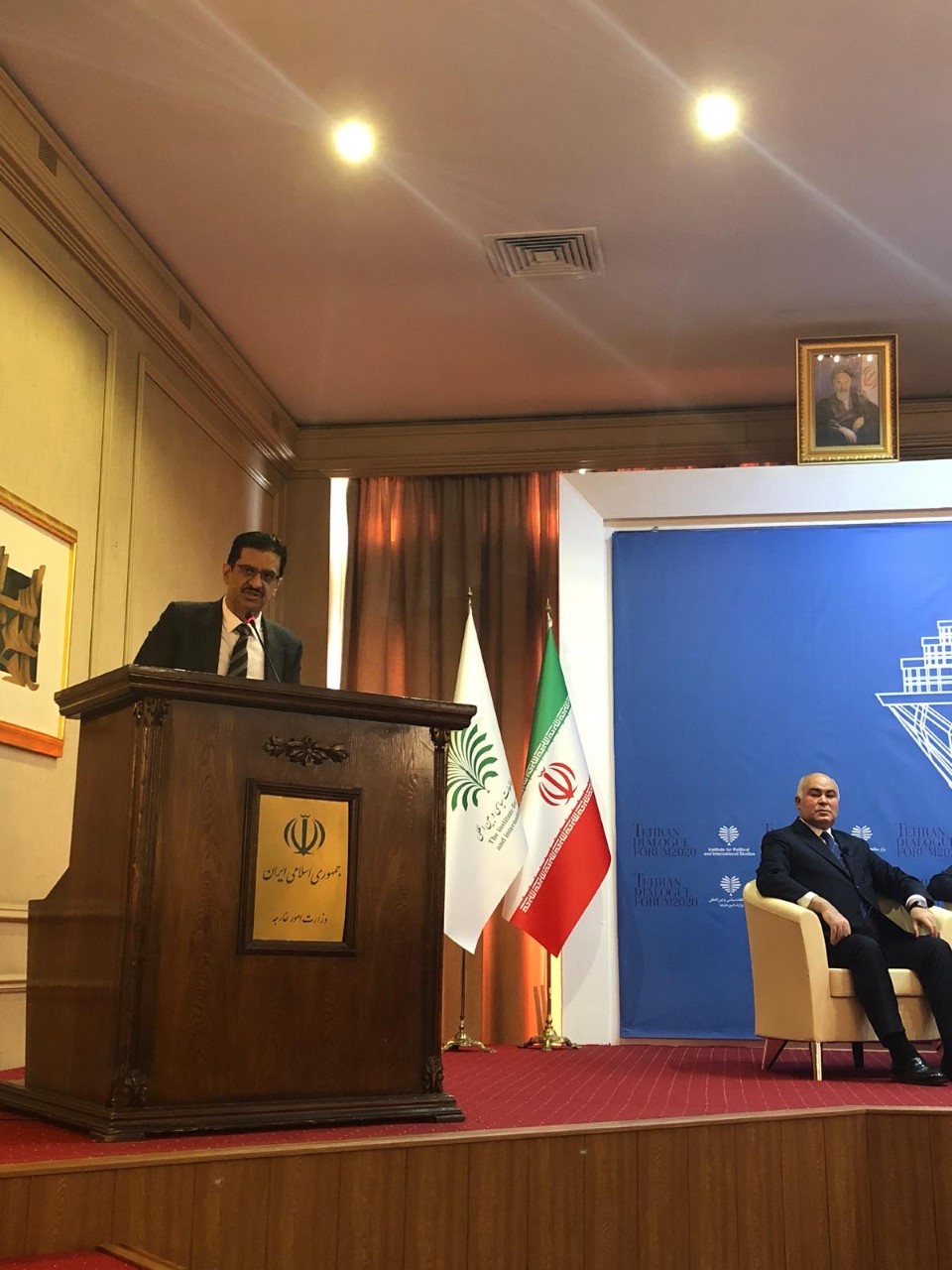Director of Policy and Planning Department: Qatar Believes that Collective Security in the Gulf Must Adhere to Principles of Non-Aggression

Tehran - Information Office - January 08 - 2020
HE Director of the Policy and Planning Department at the Ministry of Foreign Affairs Dr. Khalid Fahad Al Khater underlined that the State of Qatar believes that the collective security in the Gulf must adhere to the principles of non-aggression and non-interference in the internal affairs of other states and the inviolability of international borders.
Addressing Tehran Dialogue Forum on Wednesday, HE Al Khater said that this is a sad time and immense challenge for Iran and other states in the Gulf including Iraq, it is a defining moment, stressing that "decisions in this critical period will have consequences that will impact all of us in the region and beyond."
"As we look back to the security history of our region and the major events that have had great impact, with permanent consequences, we can see a pattern of instability created by events approximately every decade," HE said.
In 1980 there was the 8 years long Iraq-Iran war, in 1990 there was the invasion of Kuwait by Iraq, in 2001 the 11th September terrorist attacks against the US that paved the way to launch of two wars against Iraq and Afghanistan by the US. In 2011 the region again witnessed a disruptive event of a different nature, the Arab Spring, that shaked the foundation of governments across the Middle East, he noted.
"Nearly a decade later, as we start 2020 there is again defining moment that may lead to series of events that could shake the region yet again and to another war in the region," he added.
HE the Director of the Policy and Planning Department at the Ministry of Foreign Affairs said that what this underlines are two factors: There is a systemic problem at the regional level, and there is need for a region wide approach to address sources of instability and conflict.
He stressed that there is no need for the region to go through yet another cycle of war that will that have consequences which will impact the region for many years, and that there is no need to add another source of conflict, war and instability at a great human cost to the people of the region.
"What is needed is a policy of maximum restraint. It is incumbent upon the international community to mobilize, with urgency, to undertake its legal and moral responsibilities. If we want to achieve security and stability, we should go beyond managing crises and seek comprehensive and just solutions in accordance with the provisions of international law and resolutions of the international legitimacy," HE Al Khater stressed.

